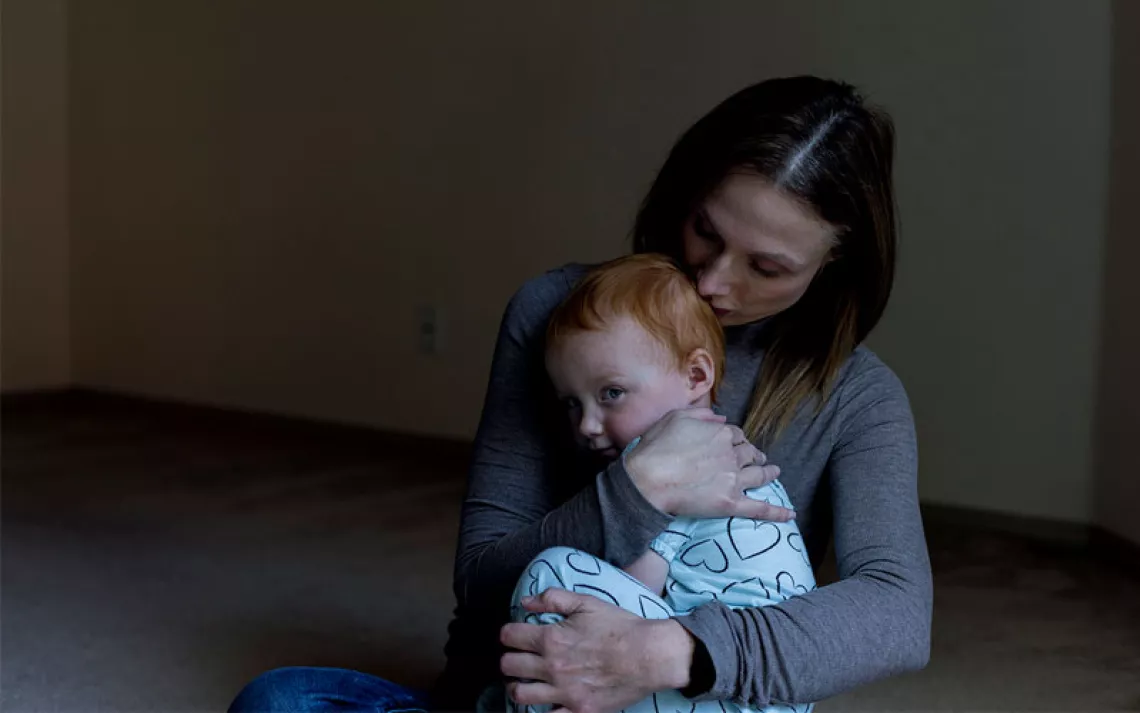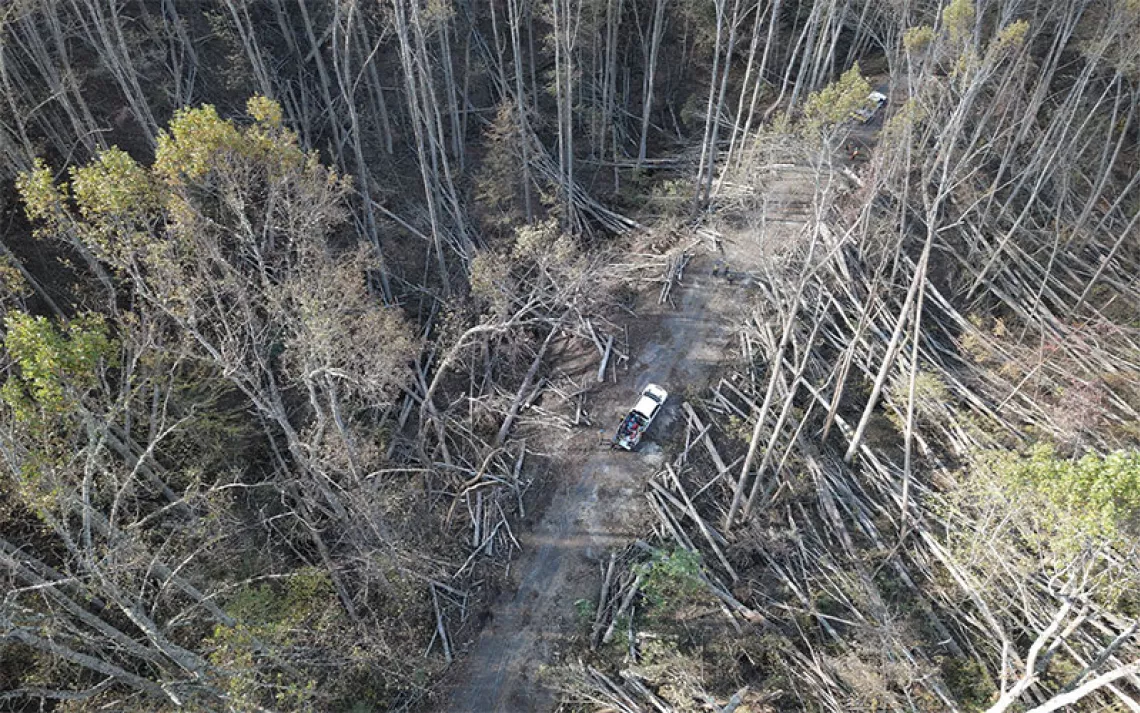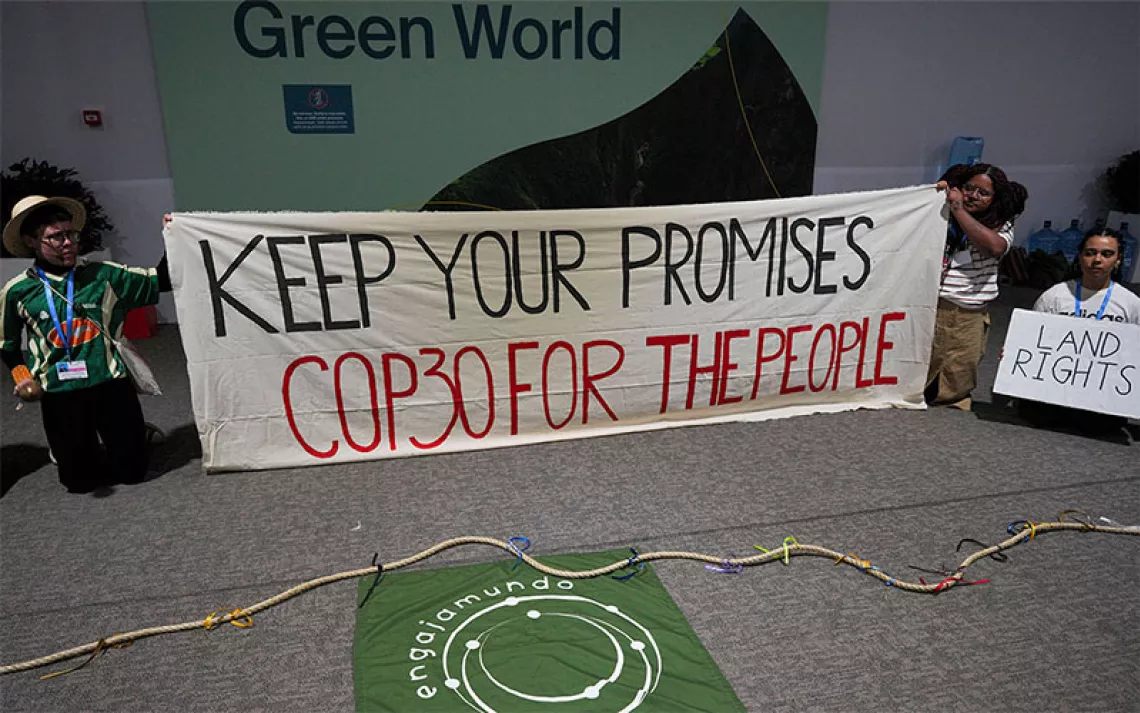Yes, Actually, Individual Responsibility Is Essential to Solving the Climate Crisis
Personal sacrifices are necessary, and greens should be honest about that

Participants of the Critical Mass ride lift their bicycles above their heads after their demonstration pedaling across Budapest, Hungary, in 2010. | Photo by AP Photo/Bela Szandelsky
In November, Sierra published an article by one of the magazine’s editors, Katie O’Reilly, about her personal struggle in deciding whether to have children in the age of climate chaos and mass extinction. Conversations about procreation are always fraught and, as expected, the essay sparked intense discussion. It was striking, however, that some readers chose to focus on the fact that O’Reilly dared to even consider the idea that individuals hold some measure of responsibility for addressing the climate crisis.
Responding to the article on Twitter, a professor at Carnegie Mellon University complained, “The ‘don’t have kids because of climate’ argument is bunk, & absolves the choices of companies & policymakers.” Sandra Steingraber, a prominent anti-fracking activist (and longtime Sierra Club critic), wrote, “Stop policing women’s fertility. The fossil fuel industry along with the banks and political leaders who keep the fossil fuel party going is the cause of the problem.” Another commenter posted, “This argument only serves the big CO2 producing corps. It’s like they threw a white [tablecloth] party, served nothing but sloppy bbq, and then watched [as] the guests blamed EACH OTHER for dry cleaning bills.”
As anyone who has read the essay knows, O’Reilly reaches a similar conclusion: It’s unfair to put the burden of climate change solely on individuals, especially women. I couldn’t agree more. And, at the same time, I worry that the knee-jerk reaction against discussing our individual responsibility for climate change risks becoming an obstacle to the sweeping changes required to achieve a carbon drawdown economy.
Dismissing the importance of individual responsibility has become the new conventional wisdom among commentators and many environmental advocates. Writing for The Daily Beast, columnist Jay Michaelson recently opined, “Individual behavior change isn’t action—it’s distraction. . . . It shifts the blame from the actual causes of climate change to fake ones, and shifts attention away from meaningful actions to meaningless, psychological ones. . . . The focus on individual behavior makes fighting global warming more controversial while letting the actual entities causing climate change off the hook.” In a June op-ed for USA Today, the eminent climatologist Michael Mann made a similar argument. “A fixation on voluntary action alone takes the pressure off of the push for governmental policies to hold corporate polluters accountable,” Mann wrote, in a piece coauthored by Jonathan Brockopp. “One recent study suggests that the emphasis on smaller personal actions can actually undermine support for the substantive climate policies needed.” In an essay for The Guardian, Martin Lukacs argues that individual action theory-of-change is a mental tic associated with the blinkered worldview of neoliberalism: “Eco-consumerism may expiate your guilt. But it’s only mass movements that have the power to alter the trajectory of the climate crisis.”
There are important truths embedded in these points of view: Brockopp and Mann are correct that voluntary action alone is unproductive. But it’s also a half-truth.
It seems to me that scorning the importance of individual lifestyle changes is in danger of becoming an overcorrection—the reaction an overreaction. Yes, it’s true that taking personal responsibility for climate change is insufficient to address the crisis; and it’s equally true that individual action is essential to the climate justice equation. While collective action is invaluable, it’s also an incomplete strategy for political change.
Ultimately, a personal action versus political action binary is unhelpful. The environmental movement needs to sustain a way to do both: agitate and organize for systemic change while also still encouraging individual behavior changes.
Or, put another way: If a fixation on personal behavior distracts from the political changes we need, dismissing the value of personal behaviors detracts from the political movement for climate justice. It may just be that encouraging personal behavior change doesn’t shrink or weaken the climate movement—it can expand, strengthen, and deepen it.
Let’s take a minute to look at why some environmental advocates rightly caution against overemphasizing personal responsibility as a climate action strategy. The new conventional wisdom is, in part, a response to what you could call Climate Action 1.0—the early-aughts theory of change that narrowly focused on what you can do to tackle global warming. The classic example of this was, infamously, the closing scene of the landmark film “An Inconvenient Truth.” After spending nearly two hours detailing how climate change was an existential threat, Al Gore told folks to change their lightbulbs. As we know all too well by now, even if we switched every lightbulb on the planet from incandescent to LEDs, we’d still be in a hot mess.
A larger—and more pressing—concern about the personal-responsibility mantra is the way in which it obscures the culpability of the fossil fuel giants and other industrial actors in fueling the crisis. To insist that individuals must make some behavioral changes only serves to let the real bad actors—the carbon barons, the banks, the right-wing ideologues who have promoted climate science denial—off the hook. See, for example, BP’s recent campaign asking people to calculate their individual carbon footprint. Such concern trolling is little more than the climate-and-energy version of the bottling industry’s long-running (and well-documented) campaign to encourage personal recycling: Just as the beverage and consumer product companies have sought to place the responsibility for the plastic pollution crisis on individuals, the energy industry is trying put the onus of climate action onto ordinary people.
Finally, there is the worry that any discussion of individual responsibility only serves to play into the hands of the political right. This is a red-hot concern among DC-based environmental operators (though usually only admitted sotto voce and off the record). Dare to mention that a meat-heavy diet is incompatible with a stable climate and you can bet that some loudmouth in Congress will start blaring that the greens are coming to take Americans’ hamburgers.
Still, environmentalists risk the separate hazard that by waving off the potency of individual action, the climate movement will simply substitute one blind spot for another. A fixation on system change alone opens the door to a kind of cynical self-absolution that divorces personal commitment from political belief. This is its own kind of false consciousness, one that threatens to create a cheapened climate politics incommensurate with this urgent moment.
Earlier this fall, I was talking with a hardened environmental activist when I made an offhand comment about the climate consequences of beef-eating and childbearing. “My whole life is a carbon offset,” this veteran activist responded, clearly implying that their 60-hour-a-week climate advocacy absolved them from worrying too much about their personal choices. A few weeks later, another activist, a senior campaigner at a Big Green group, breezily dismissed a comment I made about personal responsibility by reminding me that “just 100 corporations are responsible for climate change.” Not long after that, a third environmental campaigner bristled when I mentioned the idea that there should be a climate surtax for those who take more than six flights a year. “How would I get to the Amazon?” they asked me.
Really? Apparently, we’ve traded lifestyle scolding for now being scolded if you mention the importance of personal lifestyle.
This sort of thinking is counterproductive. For starters, dodging the issue of individual behavior could lead the climate movement into a cul-de-sac in which the public won’t be willing to shoulder the work of the climate transition because greens haven’t been straight with people about how their lives will change. Also, it’s a lost opportunity to deepen climate activism by soldering daily lived experience to larger political aspirations.
I get why the eco operatives in Washington are freaked out by talking up personal responsibility. Mention how people’s lives are going to have to change and voters hear that there will be costs and go soft in the knees.* To be sure, making the transition to a just-green economy will lead to overall improvements in quality of life. Hopefully, we’ll work fewer hours, eat more healthful foods, not be poisoned by petrochemicals. But undoubtedly many Americans will experience some of these changes as sacrifices and will therefore be resistant and distrustful.
It’s important for the environmental movement, then, to keep insisting that individual behavior changes are not only righteous but required. Such real talk opens the way to having a public conversation about how to fairly navigate the changes to come. Honesty and transparency are political assets.
But, for me at least, beyond the cold political calculus is the more important issue of integrity. When I hear environmentalists write off the importance of individual behavior change, I can’t help but think of the old Edward Abbey line “Sentiment without action is the ruin of the soul.”
I know that it’s difficult to figure out one’s own balance between political action and personal actions. (As academic Jennifer Bernstein has quipped, one’s finite time would be better spent advocating for smarter refrigerant management than planting a tree.) And, at the same time, it’s essential that each of us who cares about the fate of the planet at least makes an attempt to align our individual actions with our role as public citizens. This doesn’t have to involve foisting guilt on people or blaming and shaming; it can also take the form of a steely determination to transform our way of living.
Because here’s the thing: When you choose to eat less meat or take the bus instead of driving or have fewer children, you are making a statement that your actions matter, that it’s not too late to avert climate catastrophe, that you have power. To take a measure of personal responsibility for climate change doesn’t have to distract from your political activism—if anything, it amplifies it.
In a 2015 commencement speech, the climate activist and author Naomi Klein said that the idea that we can save the world through personal actions is “objectively nuts.” Agreed. But the efficacy of personal actions shouldn’t be measured solely on their potential benefits to Earth. They should also be gauged by how they benefit ourselves. When we take personal responsibility for our actions, we deepen our commitment to environmental sustainability. Living in accord with one’s political vision is a way of laying the foundations for the world we want to see—to engage in a kind of “prefigurative politics” that makes the future into the now.
Take meat-eating. Animal agriculture, especially cattle production, is among the largest sources of greenhouse gas emissions. Even if all the fossil fuel executives were held guilty of fraud and negligence tomorrow and their companies’ profits poured into a sweeping energy transition, we would still need to shift away from meat-heavy diets. “If we don’t reduce emissions from agriculture, we’re not going to be able to hit climate targets even if we get it exactly right on fossil fuels,” a policy expert from the World Resources Institute recently told The Washington Post.
Now, you could keep eating burgers three times a week (the US average) while agitating and organizing in support of food and farming legislation that incentivizes a climate-smart diet (which would eventually make such a diet prohibitively expensive). And/or you could attempt to help lay the cultural conditions for a systemic shift in the agriculture system by cutting beef out of your diet today—or just cutting back to one burger a month. This is the classic political strategy of fostering change through living example. If millions of people make similar choices, the system might begin to move even in the absence of policy changes.
In fact, this has already happened in the American food system. In the United States, per-capita beef consumption peaked in the 1970s and has declined by about one-third since then. While this had nothing to do with climate change (the shift is usually attributed to personal health decisions), it is evidence for how the personal actions of millions of individuals can, together, force economy-wide changes. Countless micro-decisions, engaged in repeatedly over the years, have shifted the definition of what’s considered a “normal” amount of beef to eat. The status quo changed.
The story of beef-eating is important because, for many of us, changing our diets can be incredibly tough. To make a shift in our food choices (especially later in life) requires one to go against the currents of culture, tradition, habit, and appetite. The other changes that will eventually be required to balance human appetites against the health of the planet may be even tougher. Taking the bus can be a pain. Skipping the beach vacation for climate reasons? That can feel like a real sacrifice (first-world problem though it is). Having one fewer child? For many people, that’s taking things too far.
It’s precisely the difficulty of such changes that make them valuable; to crib from John F. Kennedy, we should align our individual actions with our beliefs not because it’s easy—but because it’s hard.
In doing so, we are likely to find that the effort is empowering. When we take responsibility for the environmental consequences of our daily actions, we feel like we are in control. And when you’re in control of your own life, perhaps then you’ll feel more empowered to take control of—or at least play a role in—larger political systems.
There is some research to support this argument. A 2018 report titled “Climate Change Needs Behavior Change: Making the Case for Behavioral Solutions to Reduce Global Warming” cites what’s known as the “self-determination theory.” The authors write, “Building competence, autonomy or self-efficacy, and a sense of connectedness . . . can be leveraged in the behavior-change process. While extrinsic and intrinsic forms of motivation are often put in contrast to one another, each serves an important function when thinking about causes of behavior.”
Which is to say that personal action and collective, political action are self-reinforcing. Individual lifestyle changes can act as a kind of alloy that strengthens political activism. To do the difficult work of walking more lightly on the planet is to bind commitment to conviction.
So maybe we can agree, as a movement, to stop rhetorically putting personal action and collective action in opposition to each other as if there were some kind of activism zero-sum game. Agency and action matter regardless of what forms they take. Ultimately, how, when, where, and in what form to act is up to you. The most important thing is simply to act.
Don’t let anyone tell you differently.
* I think there’s a case to be made that this happened in Washington’s most recent failed ballot initiative for a carbon tax, the huge election spending of the fossil fuel companies notwithstanding.
This article has been modified since its original posting.
 The Magazine of The Sierra Club
The Magazine of The Sierra Club



